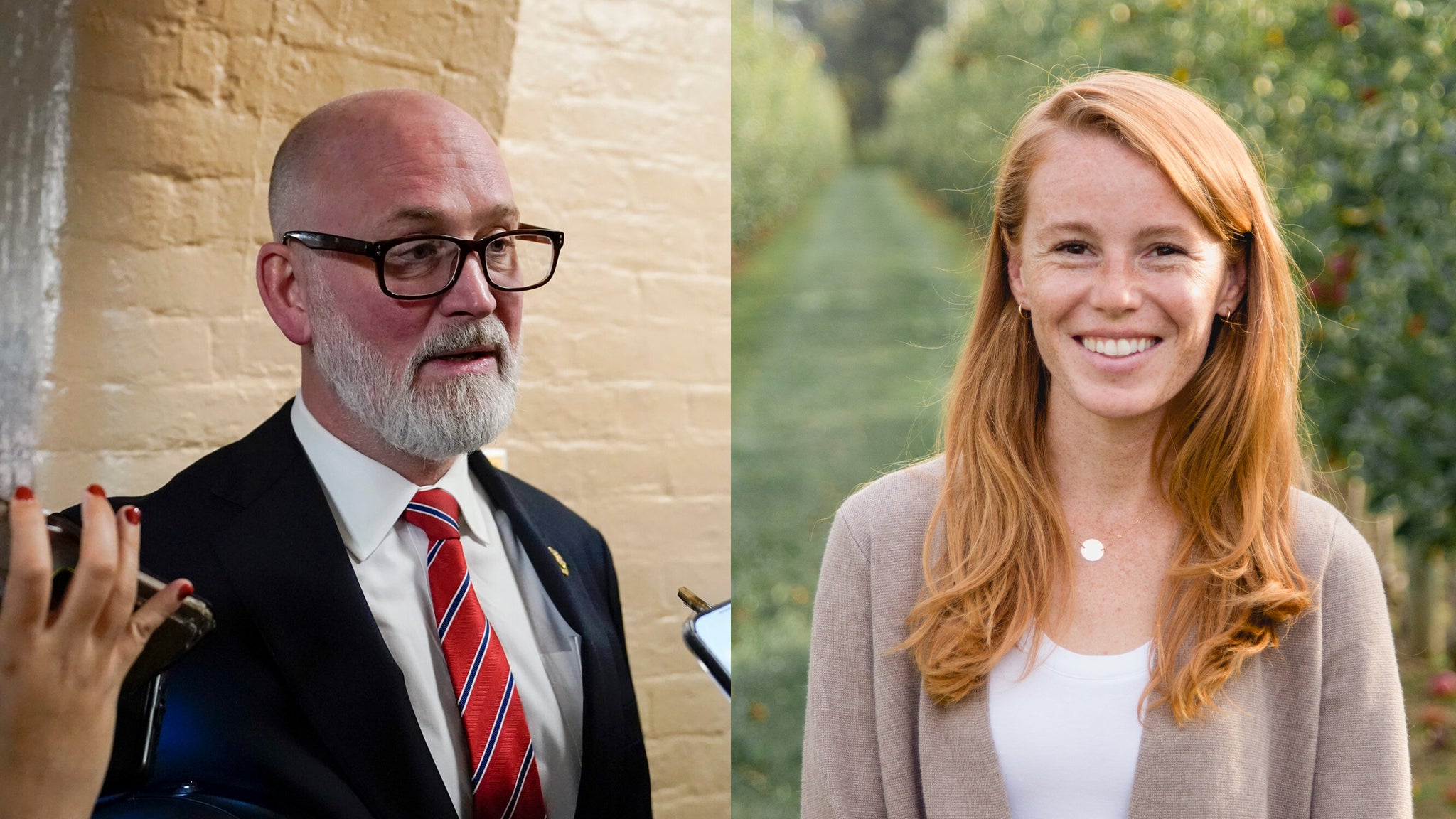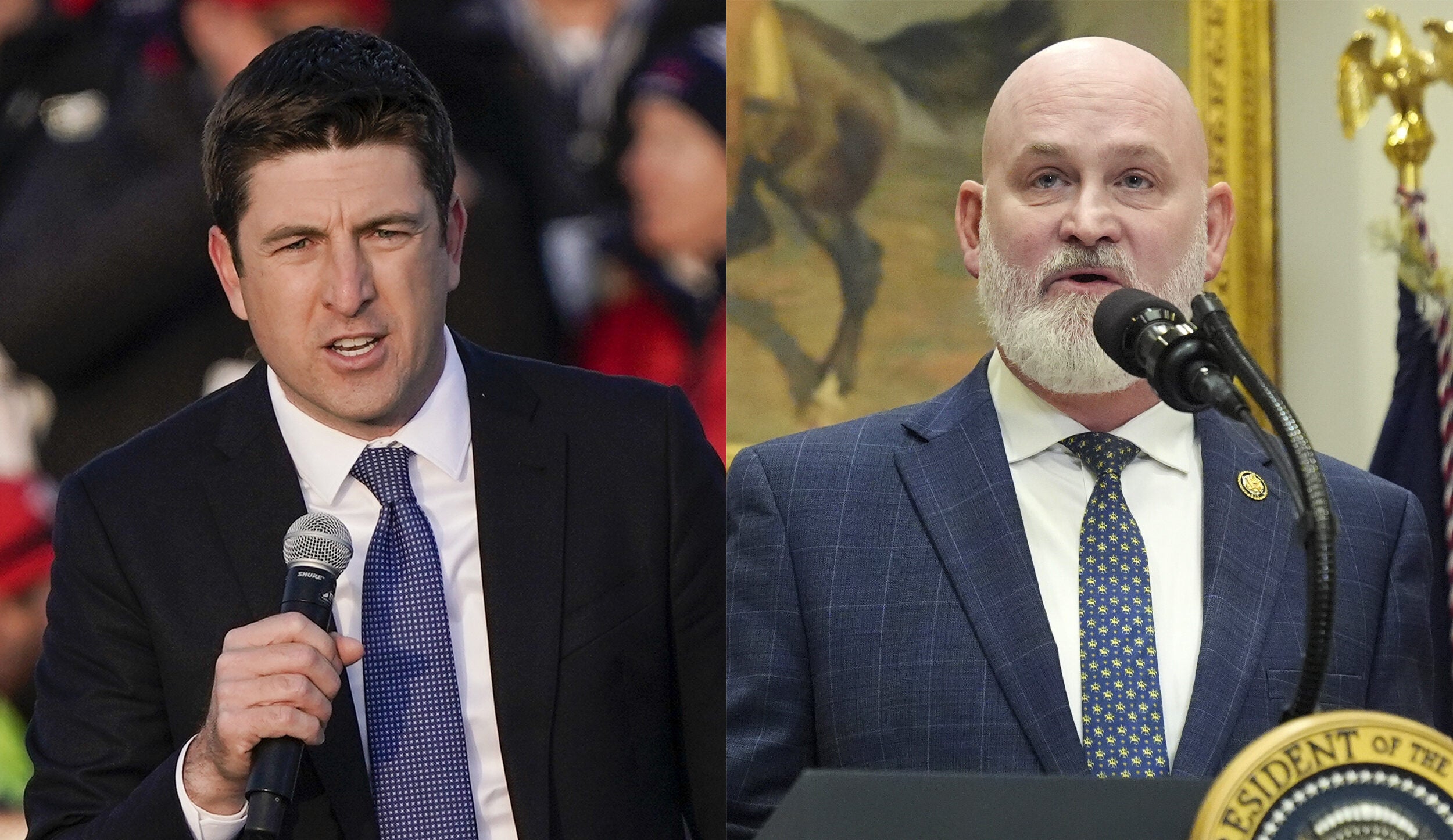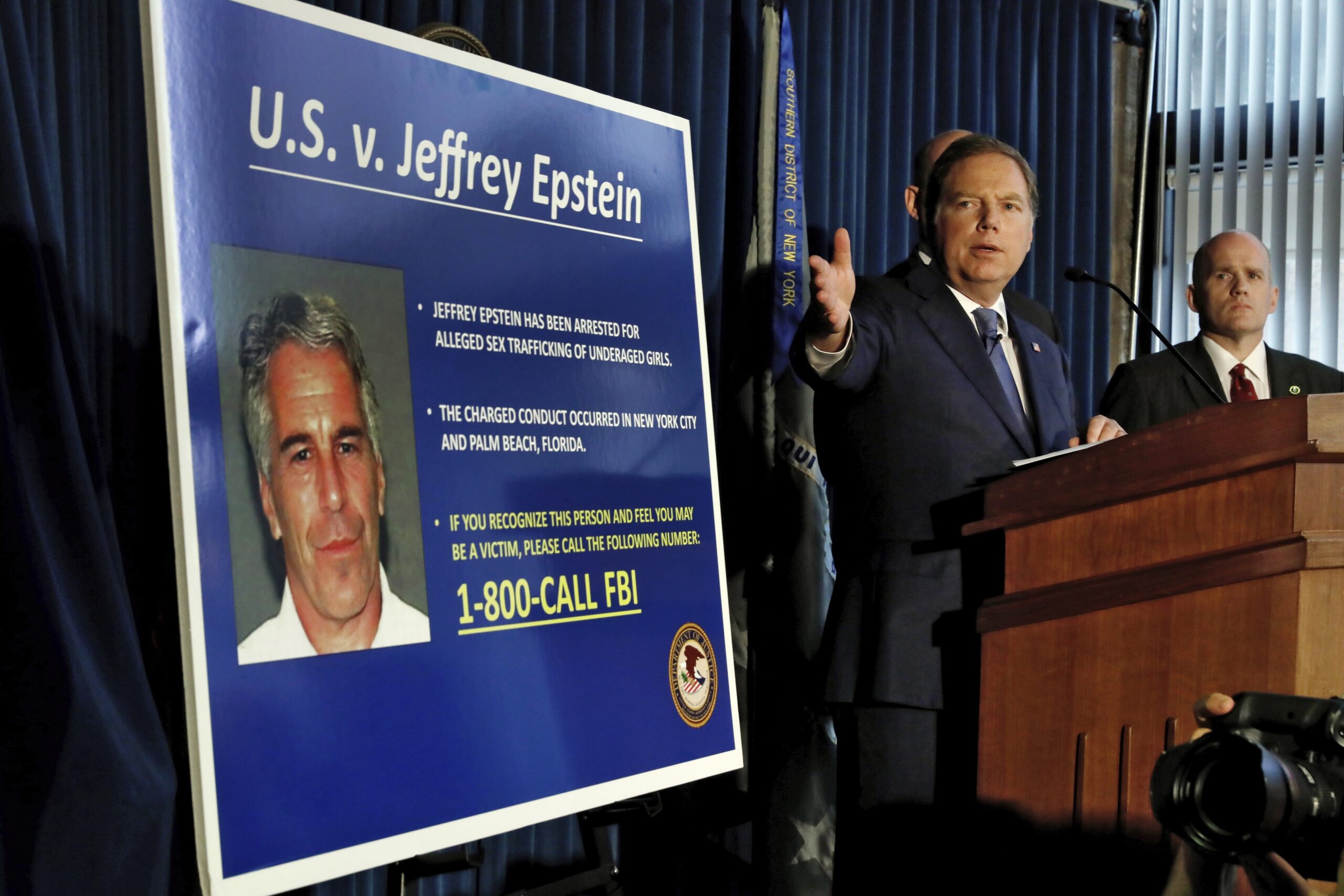Three Democrats are facing off in the upcoming primary election for Wisconsin’s 3rd Congressional District with the hope of challenging Republican U.S. Rep. Derrick Van Orden this fall.
Van Orden, a vocal supporter of former President Donald Trump, won the district for the first time in 2022. But his narrow margin of victory has some political observers wondering if the region known for being a swing district may still be competitive in 2024.
Business owner Rebecca Cooke, state Rep. Katrina Shankland and information technology professional Eric Wilson will be on the ballot on Aug. 13.
News with a little more humanity
WPR’s “Wisconsin Today” newsletter keeps you connected to the state you love without feeling overwhelmed. No paywall. No agenda. No corporate filter.
The three Democrats, who are all in their 30s, represent a new generation of political candidates. Each has a different approach for how to win over independent or moderate voters in a district that has supported both Republicans and Democrats, sometimes on the same ballot, in recent years.
Rebecca Cooke
Rebecca Cooke was the first Democrat to enter the race in the 3rd Congressional District. She launched her campaign in July 2023, less than a year after losing the 2022 primary to state Sen. Brad Pfaff of Onalaska.
Cooke, 36, runs a hospitality business in Eau Claire and founded a regional nonprofit supporting women-led businesses. She was previously a fundraising consultant for Democratic campaigns and worked for members of Congress like U.S. Rep. Raul Ruiz of California, who endorsed her candidacy in June.
Cooke has outraised her opponents in this year’s race, with her campaign bringing in more than $1.8 million as of the end of June.
But Cooke said she most wants voters to know about her working class background. She grew up on a dairy farm in Eau Claire and currently works as a waitress.
“It’s really important for everyday people to step off the sidelines to represent us,” she said. “I think that really resonates with swing, moderate and independent voters in this district.”
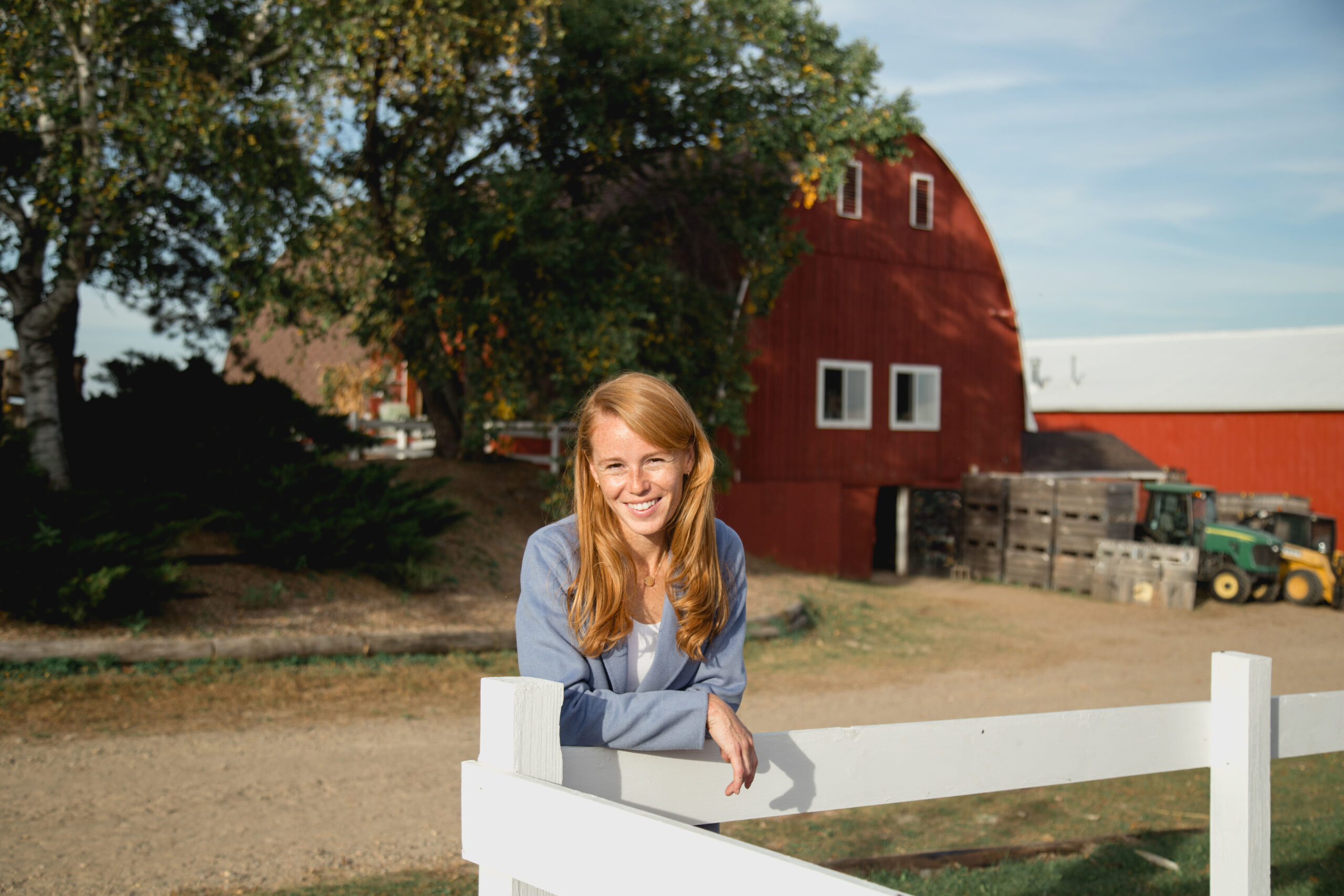
Cooke said appealing to these voters is critical for Democrats up and down the ballot in western Wisconsin this November. If she wins the primary, Cooke said reaching across the aisle would be a key part of her strategy against Van Orden. She said she’s already gotten started by spending time in small towns and at nonpolitical community events.
“We have done a poor job as the Democratic Party in really showing up in rural communities and rural places,” she said. “I think there’s a lot of work to do there. And it starts with not writing off any place because it’s too small or it’s too red.”
Cooke described her priorities as “kitchen table issues,” including addressing rising consumer costs and making health care more accessible and affordable. She pointed to the recent hospital closures in the Eau Claire area as an example, saying the region has a “major access issue.”
Cooke also said codifying abortion access previously provided under Roe v. Wade was a top concern for her if elected.
Katrina Shankland
State Rep. Katrina Shankland from Stevens Point represents the easternmost branch of the sprawling 3rd Congressional District, which covers all or part of 19 counties. Most of the district hugs Wisconsin’s western border, while Portage County, where Shankland lives, is in the center of the state.
Shankland, 36, has represented the 71st Assembly District in the state Legislature since 2013, and joined the primary race last October. She said she sees the district’s communities as having more shared issues than they have differences.
“I live near the Wisconsin River in the City of Stevens Point, which flows into the Mississippi River in western Wisconsin,” she said. “It shows that we’re all connected, and what we do in one part of the district affects those of us in the other.”
She outlined priorities around lowering the cost of health care and prescription drugs, investing in infrastructure and “securing our freedoms,” which she described as including access to reproductive care. She also said both rural and urban communities in the district are looking to support economic opportunity through improved broadband access and affordable housing.
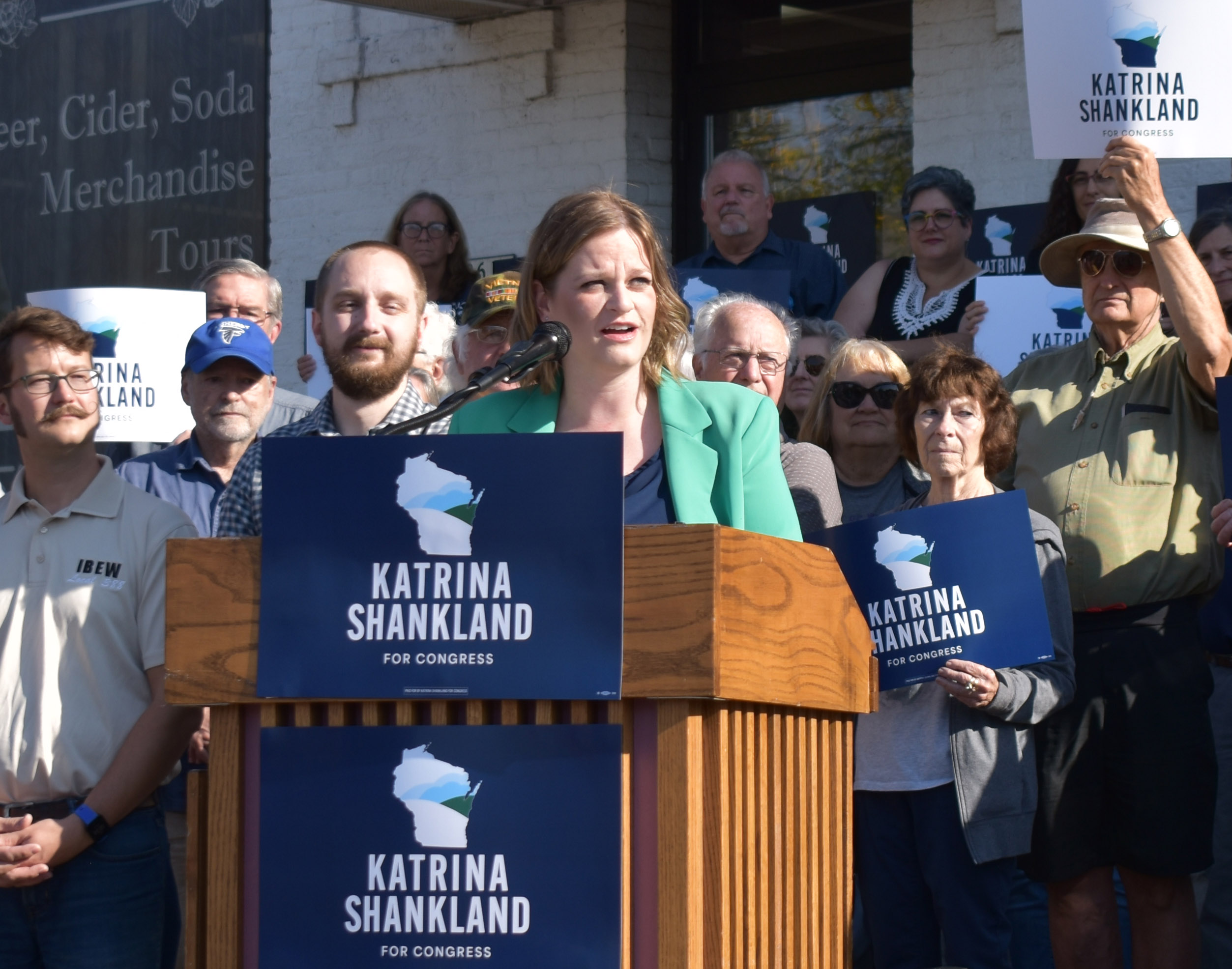
Shankland said her experience in the state Legislature sets her apart from the other Democrats in this year’s primary, stating that she has had a hand in 225 bipartisan bills signed by Democratic Gov. Tony Evers and former Republican Gov. Scott Walker.
“I’m the only candidate in this race who has won an election, who has served in public office and who’s passed a bill into law,” she said. ” All of those things matter when it comes to having a member of Congress who’s ready to deliver results for you on day one, and really tackling the significant challenges that keep the people of Wisconsin up at night.”
Shankland said she’s ready to take on Van Orden in the general election and has already called for the congressman from Prairie du Chien to debate her if she wins the primary. Van Orden did not participate in a public debate during the 2022 election.
She said her record of working across the aisle on issues like agriculture and water quality will help attract independent and swing voters in a district that supported Trump in the last two presidential elections.
Eric Wilson
Eric Wilson is a political newcomer from Eau Claire who works in IT project management. At 31 years old, he’s the youngest candidate in the race. He’s also openly gay.
Wilson said his experience in the health care and housing industries, and his degree in economics, have prepared him to take on some of the biggest issues facing the district.
“We know what the problems are,” he said. “It’s creating solutions that actually work and creating an environment where we can have disagreements, but we’re still all on the same side.”
He called the nation’s health care system “completely broken,” adding that too many people are foregoing care because of the high costs for treatment and insurance.
Wilson said his IT background would also help him take on federal policy around artificial intelligence, cryptocurrency and other emerging technologies.
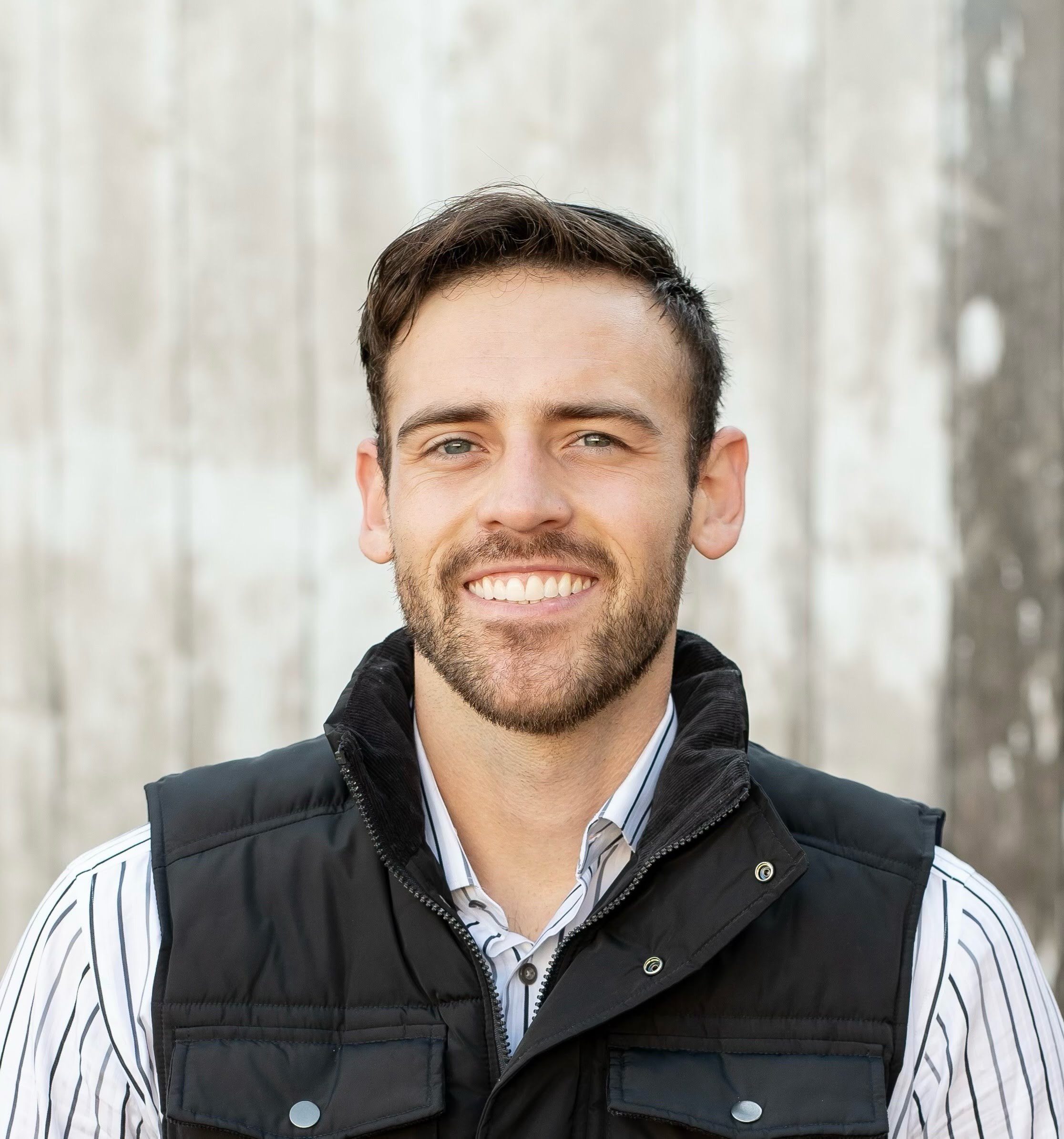
Wilson said he’s worked to prioritize the issues that are important to millennial and Gen Z voters, including those attending the six Universities of Wisconsin schools located in the district. He said younger voters have strong stances on issues like war, climate change and gun control.
“I’m talking about responsible gun ownership, which may seem crazy in Wisconsin, but it’s really not,” he said. “It’s this taboo topic. But there are a lot of people that see the political violence, we see the mass shootings, and we’re tired of it.”
Wilson has called for an immediate ceasefire in Gaza and voiced his support for the Green New Deal, positioning himself as a more left-leaning candidate than his primary opponents.
If he makes it through to the general election, Wilson said he plans to campaign on unifying the district instead of calling on voters to unseat Van Orden. He said he hopes to reach voters who feel left out of the current political system and help turn down the temperature on political debates by listening to people on both sides of the aisle.
Wisconsin Public Radio, © Copyright 2025, Board of Regents of the University of Wisconsin System and Wisconsin Educational Communications Board.



